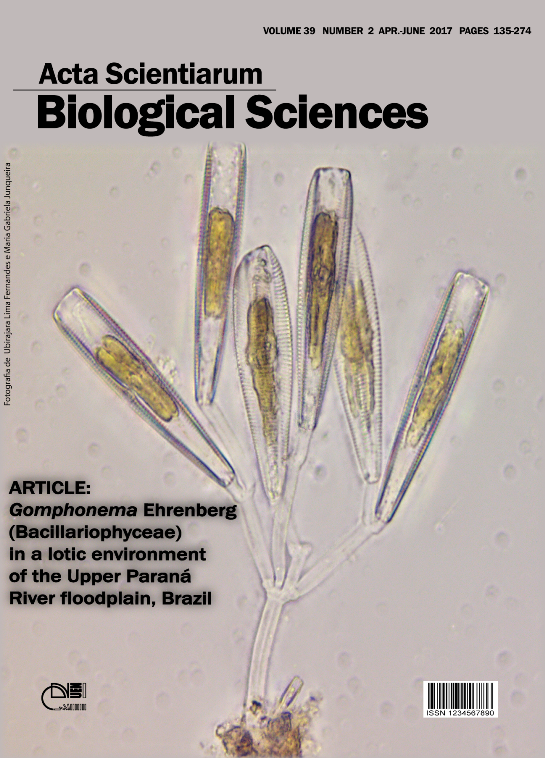<b>Cytotoxic and genotoxic effects of <i>Solanum lycocarpum </i> St.-Hil (Solanaceae) on the cell cycle of <i>Lactuca sativa</i> and <i>Allium cepa
Abstract
Solanum lycocarpum St.-Hil popularly known as ‘fruta-de-lobo’ or ‘lobeira’ is native to the Brazilian Cerrado, and used in folk medicine due to its phytotherapic properties. The action of S. lycocarpum on the cell cycle and chromosomes in order to demonstrate whether there are aneugenic and/or clastogenic effects is unknown. Thus, this study aimed at investigating the cytotoxic and genotoxic potential of methanol and hexane extracts of S. lycocarpum on growth and cell cycle of Lactuca sativa and Allium cepa. Roots from both species were exposed for 72 hours to methanol and hexane extracts with 50, 100, and 200 µg mL-1 of S. lycocarpum. Slides were prepared by the squash technique and then analyzed to determine the mitotic index and the total of chromosomal and nuclear abnormalities. The frequencies of chromosomal and nuclear abnormalities were high and significant with a dose-dependent effect, indicating that S. lycocarpum has a cytotoxic and genotoxic action depending on the dose used on meristem cells of A. cepa and L. sativa.
Downloads
DECLARATION OF ORIGINALITY AND COPYRIGHTS
I Declare that current article is original and has not been submitted for publication, in part or in whole, to any other national or international journal.
The copyrights belong exclusively to the authors. Published content is licensed under Creative Commons Attribution 4.0 (CC BY 4.0) guidelines, which allows sharing (copy and distribution of the material in any medium or format) and adaptation (remix, transform, and build upon the material) for any purpose, even commercially, under the terms of attribution.
Read this link for further information on how to use CC BY 4.0 properly.













1.png)




3.png)













